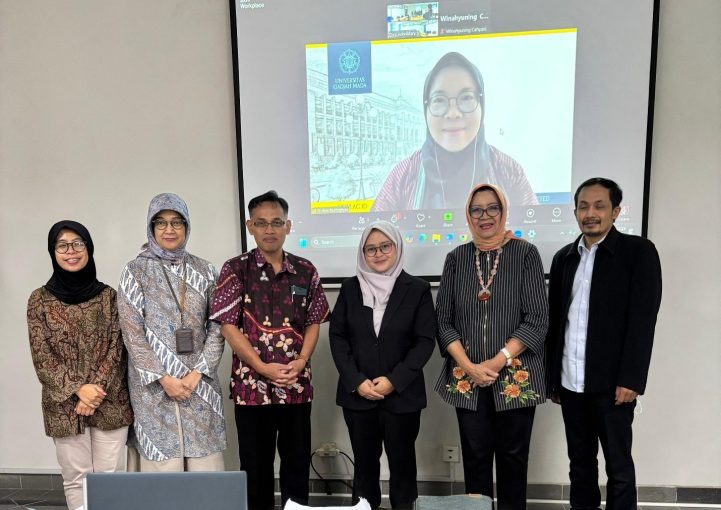
The Doctoral Program in Biotechnology, Graduate School of Universitas Gadjah Mada, held a comprehensive doctoral examination for Dini Achnafani (cohort 2023, 2nd semester intake) on Wednesday, August 27, 2025. The examination was chaired by Dr. Tri Rini Nuringtyas, M.Sc., Head of the Doctoral Program in Biotechnology.
Dini presented her dissertation proposal entitled:
“Therapeutic Potential of L-Asparaginase from Actinomycetes Type R. etli: An In Silico Study, Recombinant Production, and In Vitro Evaluation on MOLT-4 Cells.” Her research addresses the urgent need for safer and more effective treatment options for Acute Lymphoblastic Leukemia (ALL), a malignant cancer of lymphoblast cells characterized by high clonal heterogeneity due to genetic and epigenetic dysregulation. Current ALL therapy relies heavily on bacterial L-asparaginase derived from E. coli and E. chrysanthemi. While effective, these enzymes often cause severe side effects, including hypersensitivity, resistance, and unwanted L-glutaminase activity.
To overcome these limitations, Dini’s study explores L-asparaginase from actinomycetes of the R. etli type, which has shown minimal or undetectable L-glutaminase activity in preliminary studies. The research involves in silico structural characterization, recombinant protein production in E. coli BL21 (DE3), enzyme purification and activity profiling, as well as in vitro cytotoxicity and apoptosis assays on MOLT-4 (T-ALL) cells. Additionally, molecular analyses will examine the regulation of miRNA, ASNS mRNA, and protein expression following L-asparaginase treatment.
Dini is supervised by a promotorial team consisting of Dr. Muhammad Saifur Rohman, S.P., M.Si., M.Eng., Ph.D. (Promotor), Prof. dr. Sofia Mubarika Harjana, M.Med.Sc., Ph.D., and Dr. Harto Widodo, S.P., M.Biotech. The examination board included Widhi Dyah Sawitri, S.Si., M.Agr., Ph.D. and Dr. dr. Kartika Widayati, Sp.PD-KHOM.
This research contributes directly to several Sustainable Development Goals (SDGs). It supports SDG 3 (Good Health and Well-being) by advancing innovative cancer therapeutics that may reduce side effects and improve patient outcomes. It also aligns with SDG 9 (Industry, Innovation, and Infrastructure) through the development of biotechnology-based drug discovery platforms, and SDG 15 (Life on Land) by emphasizing the potential of microbial biodiversity—particularly actinomycetes—as a source of novel bioactive compounds.
